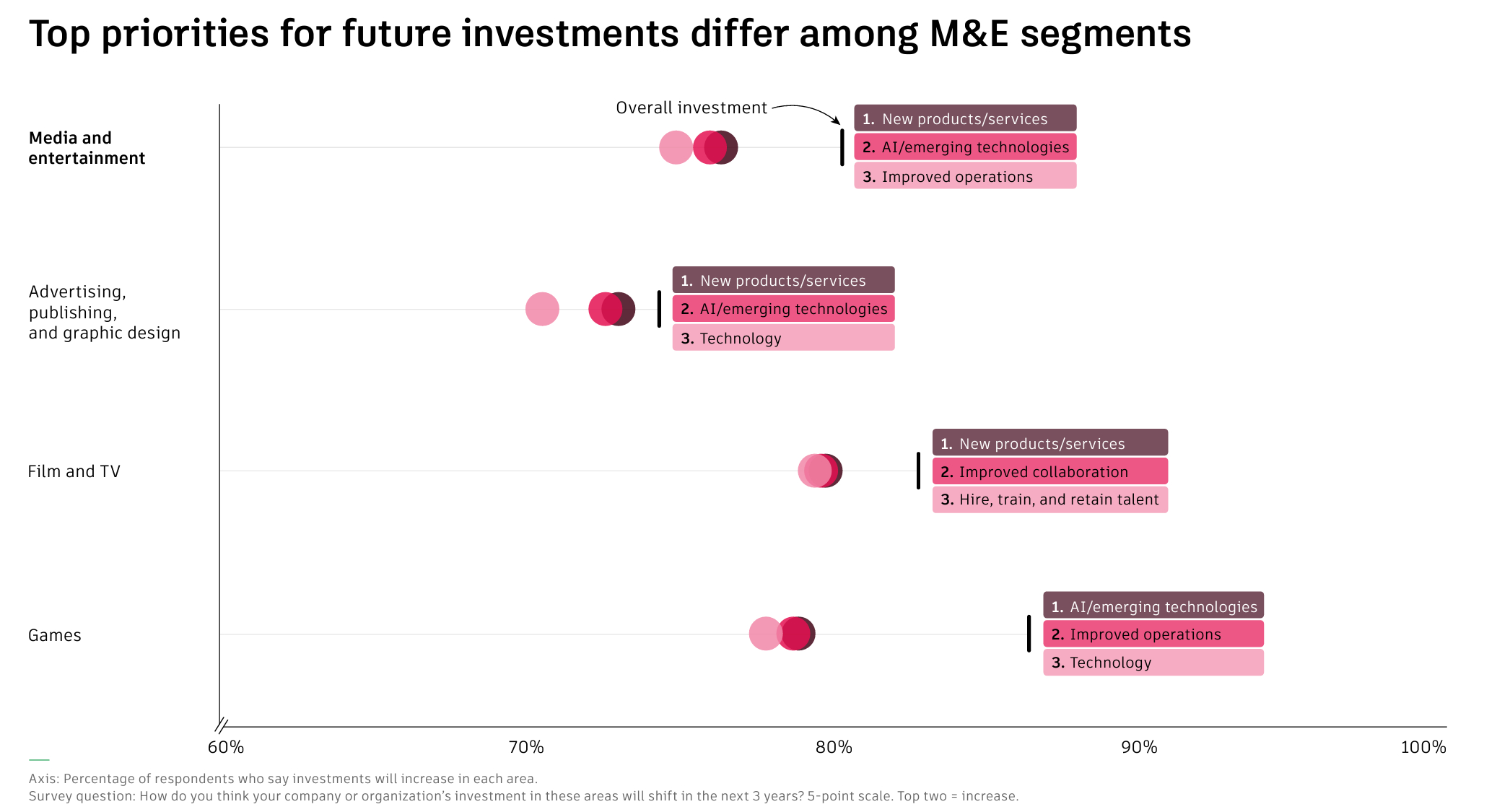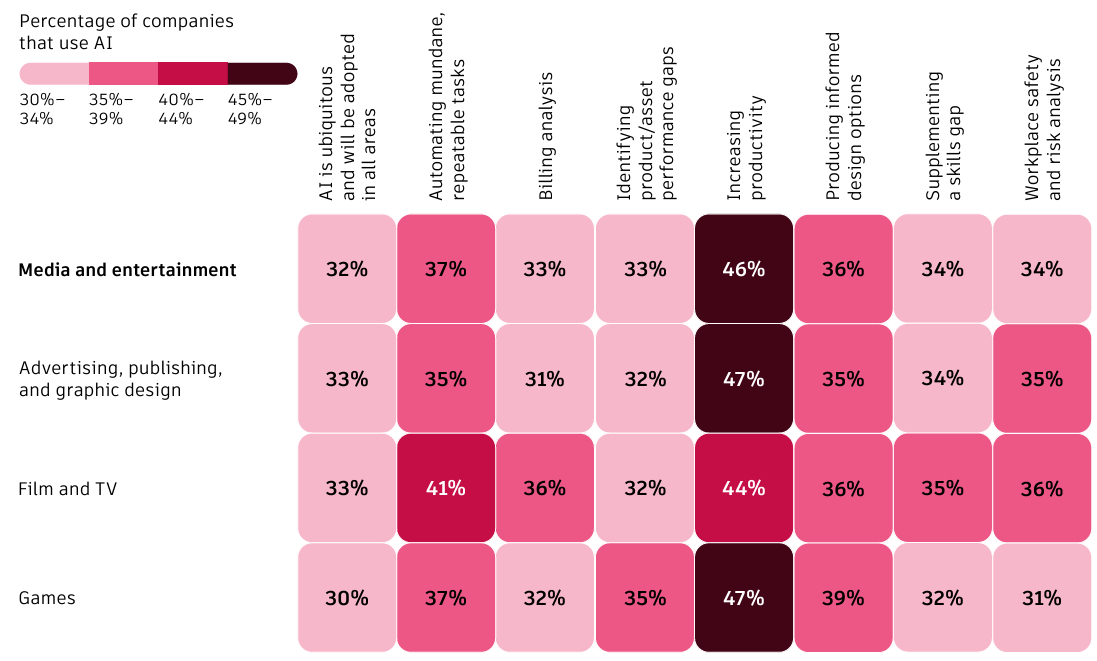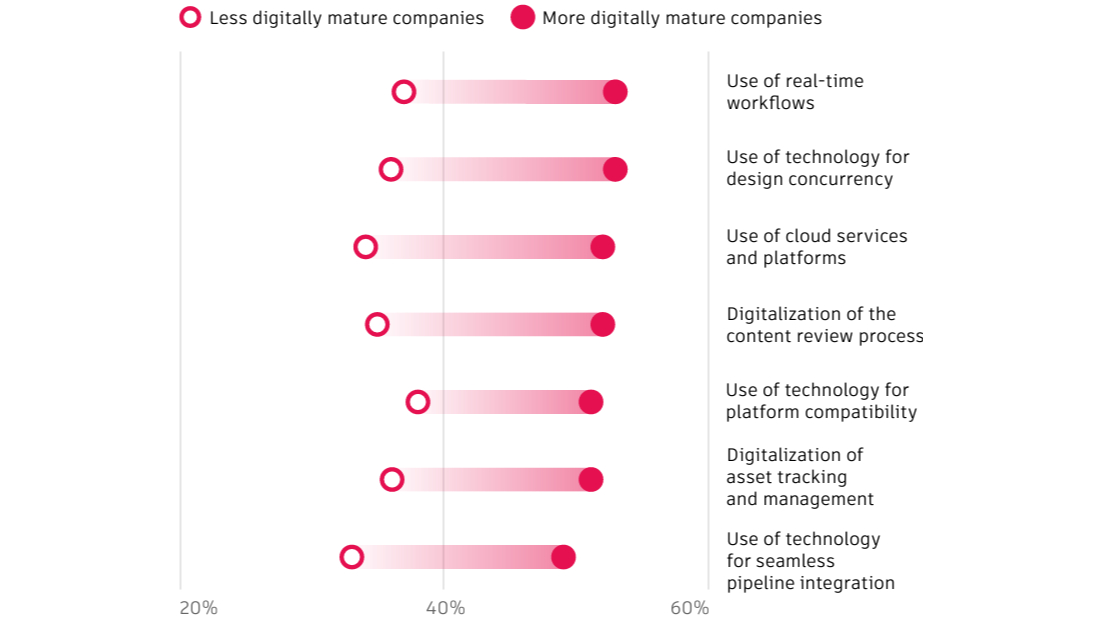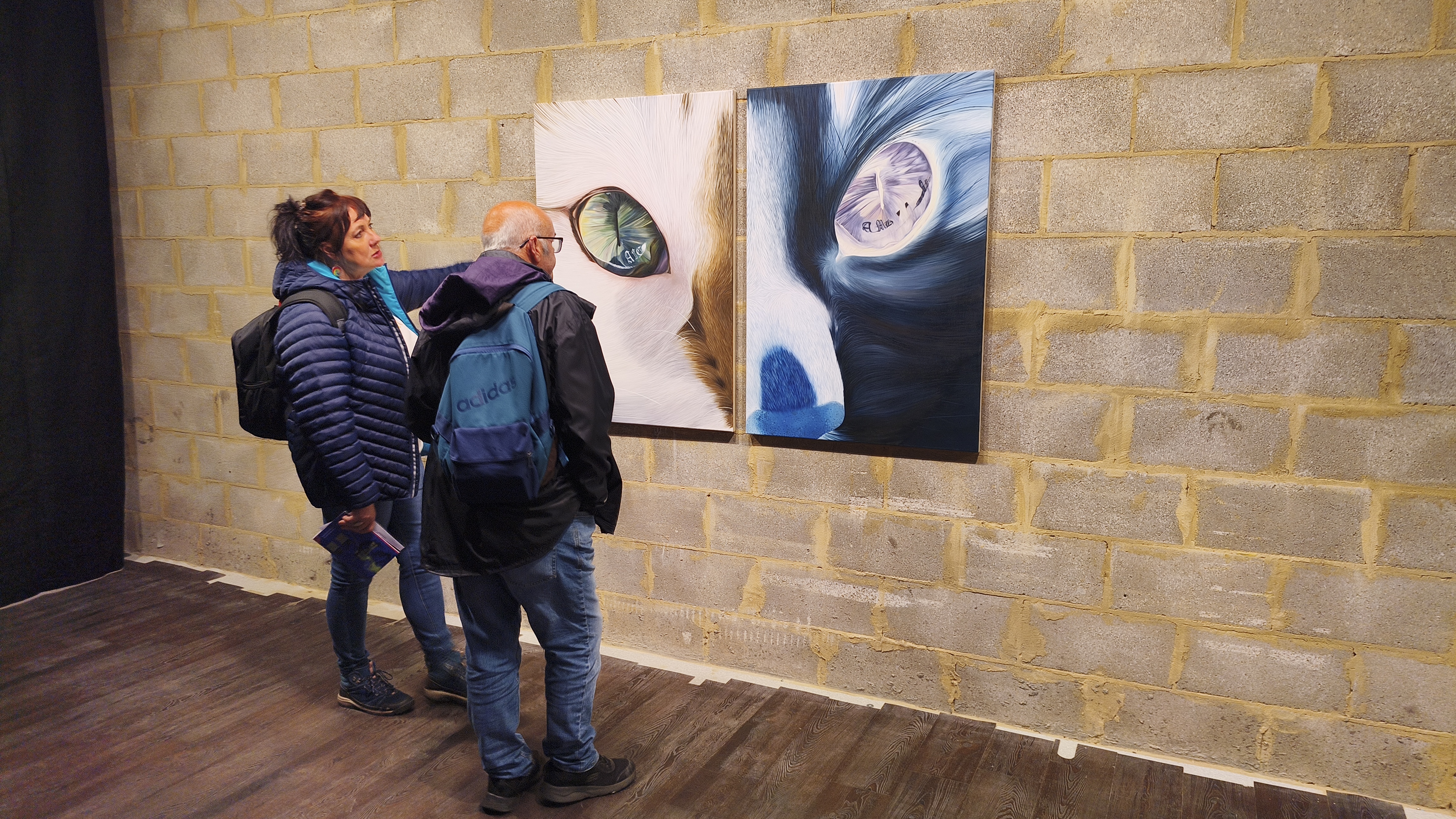Ability to work with AI identified as "top skill of the future" for creatives
The question of how AI will impact on the creative sectors and what it means for those in training has been one of the most hotly debated topics of the year. We reported a couple of months back on a study into how Hollywood bosses expect AI to impact on their HR needs. Now the design software giant Autodesk has delved deeper in its latest report on the state of the industry.
Autodesk's 2024 State of Design and Make report throws up statistics on business resilience, talent and sustainability based on surveys of 5,399 business leaders across sectors ranging from media and entertainment to construction services and industrial machinery. And the insights into attitudes to AI are one of the highlights.
The report surveyed 2,002 people in architecture engineering and construction, 1,787 in design and manufacturing and 1,579 in media and entertainment (42% in advertising, publishing and graphic design, 30% in film and 28% in gaming). Despite AI still being an emerging tech, fifty-six percent say they are already approaching or have already incorporated AI. Still more expect AI to enhance their industry and become “essential across the board”.
And industry leaders appear to be optimistic. The majority (78%) expressed confidence that their company will will make the right decisions regarding AI and that AI will enhance their industry. Moreover, 79% think AI will make their industry more creative and 66% think AI will become essential across the board within the next to thee years.
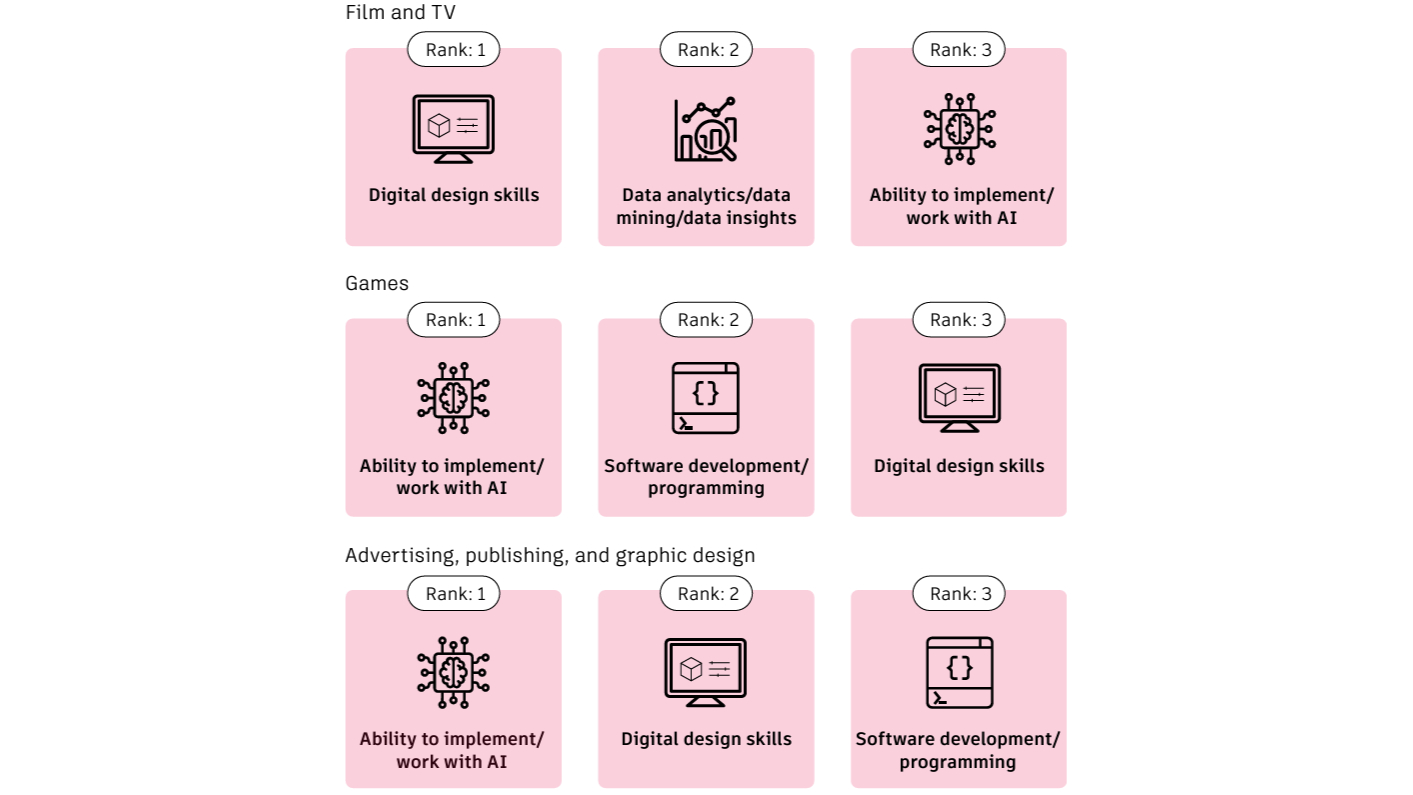
Most dramatic of all was the finding that industry leaders ranked the ability to implement AI tools or "work with AI" as the most important skill for the future across a range of industries. This was ranked as the top skill in architecture and construction, design and manufacturing, games and advertising, publishing and graphic design. In the film sector, it was ranked third behind digital skills and data analytics.
“Being able to work with and harness AI, whether it’s in art, development, or game planning, will be an important skill set in the future,” Ji-Woong Hong, executive vice president of BF Production at mobile and online game developer COM2US, told Autodesk. “Additionally, technical artists and data scientists who can use AI models to predict the viability of different business models will also be valuable.”
More generally, leaders in media and entertainment tended to agree that digital skills and a willingness to participate in self-directed learning would be vital in the future. Gaspard Roche, associate global head of characters at the visual effects postproduction, and animation company Mikros Animation said: “Flexibility is a skill set I always value. When we needed more artists in one of the other departments, we were able to shift people if they could work in another area. The cool thing about flexibility is you also get to know other aspects of the business and workflows that can make you better in your main skill set.”
Daily design news, reviews, how-tos and more, as picked by the editors.
Opinions on the destabilising effect of AI were split fairly evenly: 16% strongly agreed that AI was a threat, 16% strongly disagreed, while 25% somewhat agreed and 24% somewhat disagreed. Overall, the survey found trust in AI to be "extraordinarily high", with 76% of respondents saying they trust the technology for their industry. However, some cautious skepticism emerged in interviews with business leaders and experts. Some expressed doubts that companies are going to be able to trust the technology enough to sign off on critical deliverables, noting that existing AI tools often present errors as facts.
Others believe that level of optimism will drop if bad actors misuse the technology. “We’ve not yet had cases where AI has done something really bad,” notes Severin Tenim, head of strategic projects & development at ALEC Engineering & Contracting, a leading tier one construction and contracting firm. “Once there are more events of AI impacting society negatively, or malicious use of AI, I think that trust level will come down.”
The top use cases cited for AI today are increasing productivity and automating mundane, repetitive tasks. Ji-Woong Hong said: “We are testing different options for AI and ML and applying them to our daily work. For example, AI technologies are used to create concept art and set the direction for new games, with faster results.
As for Autodesk's own tools, the company noted that the beta version of a Maya automation tool that helps artists manage their scene data led to a 60% increase in the number of users interested in the beta version over the course of just a few months, a spike that is unprecedented in the history of the company’s beta launches.
And while much of the conversation about AI in design and make industries centers on generative design, companies are also exploring use cases that streamline or enhance back-office processes. “There are so many aspects to AI. Cybersecurity vendors are building AI into network security. Does that count as a creative company using AI? We’re using it to protect our systems. We’re not using it to create images. We’ve already had our clients tell us, ‘You can’t use AI unless you tell us.’” — David Spilsbury, Chief Technology Officer, Axis Studios, an animation and VFX studio
The survey also looked at the issue of digital maturity. Digitally mature M&E companies were found to be far ahead of their peers when it comes to "practices that are key to success in the sector". Sixty-six percent of M&E respondents said their company was digitally mature.
Key aspects highlighted were cloud connectivity for collaboration and investments in back-end computing infrastructure to power advanced work in areas like visual effects. Marion Guignolle, lead technical design animator for Gearbox Studio Québec, said companies need to balance the pressure to move quickly with the need to evaluate new tools carefully.
“It’s very important to stay up to date with what’s happening in technology because it changes every day and there is always something new,” Guignolle said “You need to test and try things yourself to form your own opinion about what is going to work in your field and what isn’t. If you stay in your comfort zone, you’re going to get left behind.”
For more on AI, see our pick of the best AI art generators and Adobe's new AI tools for Premiere Pro.
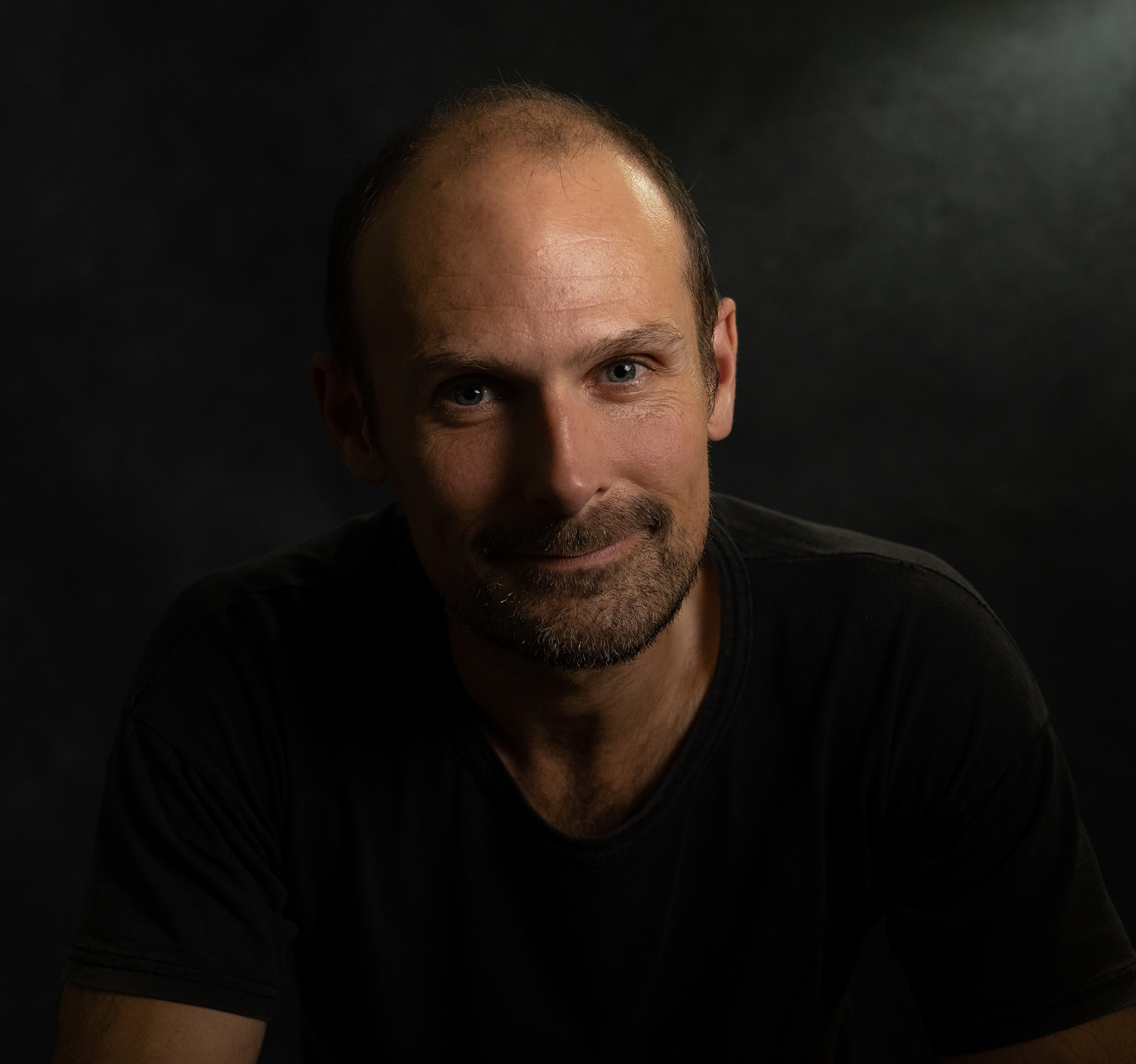
Joe is a regular freelance journalist and editor at Creative Bloq. He writes news, features and buying guides and keeps track of the best equipment and software for creatives, from video editing programs to monitors and accessories. A veteran news writer and photographer, he now works as a project manager at the London and Buenos Aires-based design, production and branding agency Hermana Creatives. There he manages a team of designers, photographers and video editors who specialise in producing visual content and design assets for the hospitality sector. He also dances Argentine tango.
